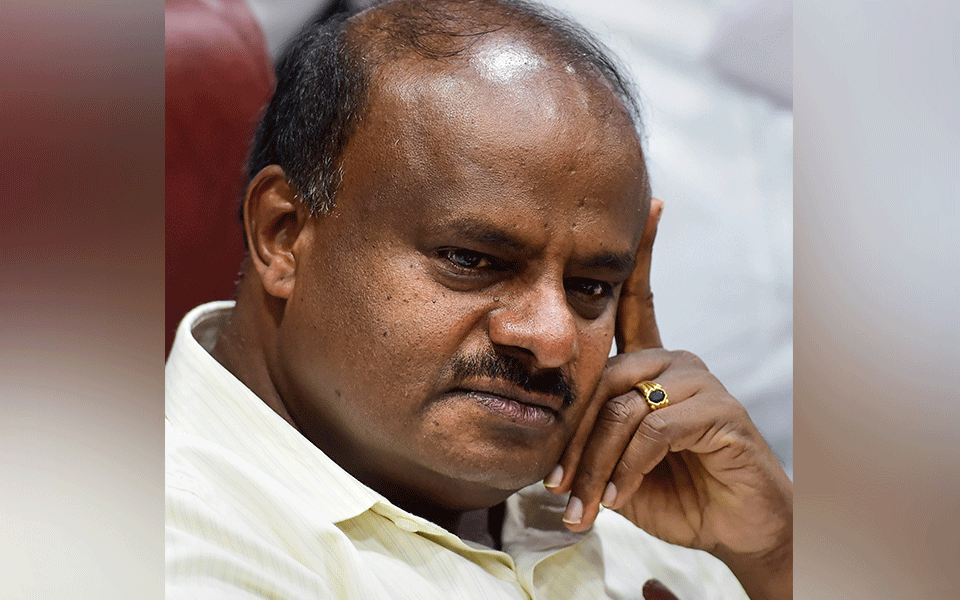Bengaluru: Karnataka Chief Minister H D Kumaraswamy Monday requested Prime Minister Narendra Modi to recommend the name of Sivakumara Swamiji of Siddaganaga mutt for 'Bharat Ratna' posthumously.
Shivakumara Swamiji, the 111-year-old head of the Siddaganga Mutt, known as the 'Walking God', died on January 21 this year after prolonged illness.
In a letter to Modi, Kumaraswamy said Swamiji's service to the people deserves recognition at the highest level through the award of Bharat Ratna.
Several memoranda have been received from political parties and civilians, institutions and associations, for conferring the 'Bharat Ratna' on the seer, he said and urged the prime minister to recommend the seer's name for the country's highest civilian honour posthumously.
The seer was considered as the incarnation of Basavanna, the 12th century social reformer, as he accepted all irrespective of their religion or castes.
Listing his contributions, Kumaraswamy said the Shree Siddaganga Education Society, set up by the late Swamiji, has established more than 130 educational institutions, mostly in rural and semi-urban areas.
"These institutions are providing education ranging from Sanskrit studies to engineering and technology, thus making rich contribution to the educational development of the people," he said.
Shree Siddaganga Math also hosts more than 9,000 children who are provided free food, shelter and education, the chief minister added.
Let the Truth be known. If you read VB and like VB, please be a VB Supporter and Help us deliver the Truth to one and all.
Hyderabad (PTI): Telangana Chief Minister A Revanth Reddy met Union Home Minister Amit Shah in Delhi on Wednesday night and urged him to increase the sanctioned strength of IPS officers to the state in view of its growing administrative and security needs.
The two leaders also discussed the recent surrender of several senior Maoist leaders before the Telangana Police and other issues.
"During the meeting, the two leaders discussed the issue of Maoist surrenders and their rehabilitation. The chief minister informed Shah that significant improvements in policing have taken place in Telangana over the past two years," an official release here said.
Highlighting that 591 Maoists have laid down their arms and joined the mainstream of society during this period, the chief minister said the state government was providing them compensation and rehabilitation assistance as per the rules.
He requested the Union home minister to extend financial support from the central government for development works in the backward regions of the state.
Reddy also urged Shah to increase the sanctioned strength of IPS officers to the state from 83 to 105 in line with the state's growing administrative and security needs, the statement said.
The first cadre review after the formation of Telangana was conducted in 2016, while the next review, due in 2021, was delayed and finally carried out in 2025. Even then, only seven additional IPS officers were allocated to the state, the chief minister informed Shah and requested that the third cadre review be conducted in 2026 as per the schedule.
Reddy explained that Telangana, like the rest of the country, is facing several modern challenges, including cybercrime, drug trafficking, white-collar crimes, and other emerging security threats.
He highlighted the reorganisation of the Hyderabad, Cyberabad, and Malkajgiri Police Commissionerates, the proposed formation of the Future City Commissionerate and the rapidly growing population in Hyderabad to underline the increasing administrative requirements of the state.





